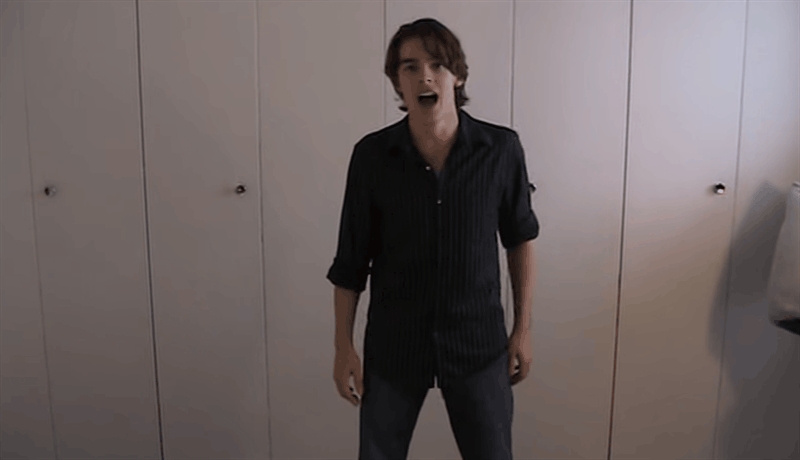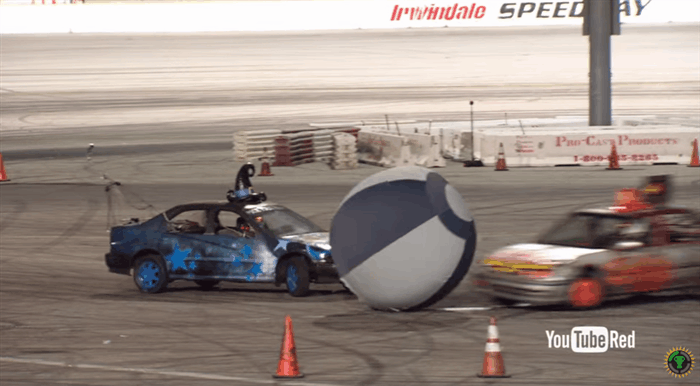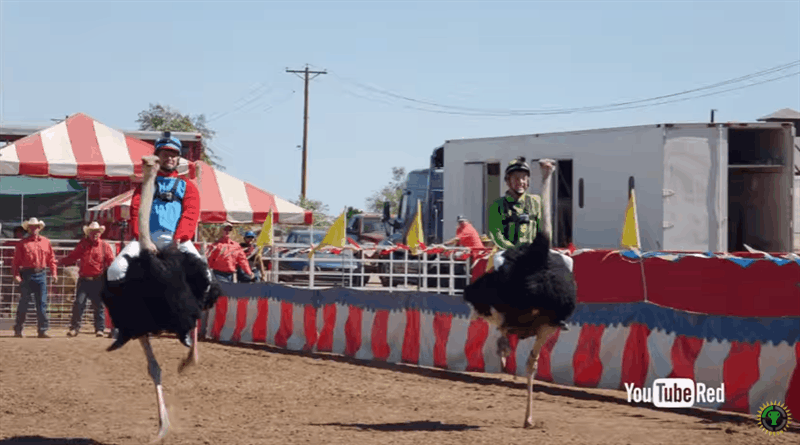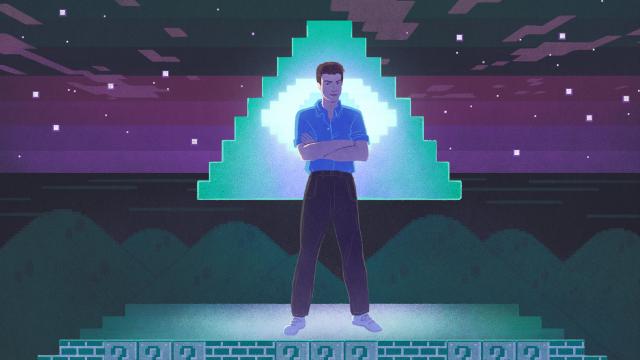In 2009, Matthew “MatPat” Patrick graduated from Duke University with a double major in theatre and neuroscience. Seven years later, he has become one of the largest channels on YouTube — and he did it by making videos where he muses about subjects like whether or not Super Mario is actually a psychopath.
Illustration: Angelica Alzona
“Fan theories” like the ones Matthew Patrick produces exist for nearly every type of media, from Pokémon to Toy Story and everything in between. You could probably fill a book with all the theories that people have about what is actually going on in Game of Thrones (R + L = J!). Theories that are intriguing enough, like the one that postulates that every Pixar movie is connected, often go viral, raking in millions of pageviews (and potentially some cash) for whoever came up with them. All of this happens regardless of whether or not the fan theory actually turns out to be true. For some media, like video game series Five Nights at Freddy’s, fan theories almost overshadow the original work.
On YouTube this has blossomed into a wider phenomenon of overanalysing media, with countless number of channels dedicated to using science, maths, and history to explain certain aspects of pop culture. But when MatPat originally started his Game Theorists channel, he had no idea things would blow up this way. Actually, he never intended to be a YouTuber at all: his dream was to be an actor.

The first videos MatPat uploaded to The Game Theorists channel are him singing, dancing, and auditioning for plays. When that didn’t quite work out, MatPat decided to revamp his channel as a portfolio that could prove to employers that he had the chops to write, research, and edit things online. That’s how he came to develop the first episode of Game Theory, a video where he uses Chrono Trigger to talk about quantum mechanics.
“I saw the channel as an opportunity to really share the enthusiasm for learning with a wider group of people,” MatPat told me in an interview. “What I like to say is, [it’s] an educational channel that’s disguised as an entertainment channel.” An easy way to think about Game Theory is as a combination of Mythbusters and The Discovery Channel focused on fictional things.
If this sounds dorky, that’s because it totally is. But people love to nerd out about their favourite pieces of media, and fan theories allow people to have a sense of ownership over pop culture. The act of taking something and fleshing it out in ways the original work doesn’t is almost like an extension of fan fiction, except there is more of an expectation of legitimacy.
Take, for example, this video where Game Theory hypothesizes about the true origins of Rosalina, a character from the Mario Galaxy games:
MatPat starts with the premise that Rosalina is actually Peach’s daughter — which, like, OK, how do you even prove that? This is how Game Theory hooks you in: it gives you a premise so outlandish you keep watching just to see where things go. In this case, Game Theory uses the science of genetics and statistical analysis to prove Rosalina’s lineage. By the end of the theory, either your mind is blown or you think the entire thing is bullshit. That’s part of the charm.
Often, a theory will take weeks of research and hundreds of hours of work. “I have a whiteboard in my office where, literally, there are all these details and facts all together, and you have yarn connecting different elements,” MatPat joked. “It’s typical to what you’ll see in a crime series.”
“[Theories] make the game experience fresh and new again,” MatPat said. “It completely changes your perspective of Mario if you’re going through Super Mario Galaxy looking for clues or finding hints around maybe Rosalina is Mario’s daughter, or is Peach’s daughter. And I think refreshing or giving you a new perspective on the way you’re playing these games, and the lore bits, and the dialogue — it helps enhance the experience, or help something old feel new again.”
Once it floats around online, a good theory might become so influential that it changes the entire way people understand a piece of media. The spectacular success of Five Nights at Freddy’s, for instance, is at least partially due to YouTubers who tried to piece together the mysterious identity of the killer within the game, and this investigation became the centrepiece of the Five Nights at Freddy’s experience.
Today, to talk about Five Nights at Freddy’s is to talk about fan theories, and the most popular ones of course belong to MatPat, with individual videos reaching millions of views:
“I always, always, always will point to Five Nights at Freddy’s as the game that has done so much right,” MatPat said. “Both from a gameplay standpoint — with the jump scares, people love seeing the reactions of their favourite YouTubers, how scared they are and all that — but then also, beyond the game, at leaving clues that on their own don’t necessarily amount to much, but when you put them together, this vast hidden lore [happens].”
Fan theories are outright influencing the way developers create games, too. Viral horror game P.T., for instance, was designed from the ground up to hide a larger mystery that players could not uncover on their own. Some gameplay scenarios only had a very small chance of happening, and certain messages were encoded in different languages and forms. It was intentionally impossible for a single player to experience everything within P.T.
The developers hoped that fans would come together and cooperate with one another to discover that P.T. was actually a teaser for another (now canceled) game, Silent Hills. Getting to that point and solving the game required the sort of theorist thinking that the internet is now primed to do.
While fan theories and overanalyzing pop culture is a thing everyone does now, it is usually relegated to concepts and ideas. For MatPat, this isn’t enough. It’s never been enough, really.
“If you go back to episode 14 of [Game Theory], I did an episode about Star Fox, and how the aileron roll is the correct term for the barrel roll,” MatPat said. “In that episode, [the script says something] like, ‘hey if I had a bigger budget, I would go to an airfield right now and hop into a plane and show you the physics, and how you perform these moves in real life. Sadly I don’t.’”
A lot has changed since that Star Fox video from 2011: Game Theorists has now 6.4 million subscribers on YouTube, and nearly 800 million views. MatPat has gotten so big that today he is debuting a new series in partnership with YouTube Red called Game Lab:
“For the last five years, I’ve made a name for myself overanalyzing video games using real world science and maths,” MatPat said. “But now I’m taking it to the next level by throwing some of the world’s most popular gamers into the scenarios we play through every day. Will the games stack up to reality? And are gamers are good in real life as they are on screen?”
The first two episodes, which are available on YouTube Red starting today, have MatPat recreating elements from franchises like Mirror’s Edge and Rocket League. The idea is to have some fun while also testing out what is realistic about video games. Though the episodes are slick and well-produced, there’s an element of rawness to them, like reality TV. That’s because Game Lab features actual people who are put into outlandish situations.
In the Rocket League episode, for example, MatPat has to learn how to play real-life car soccer. As it turns out, scoring a goal while driving is pretty damn hard, especially when you have a bunch of other cars trying to crash into you. In Rocket League, that’s part of the thrill, and colliding with another player is never a big deal. In Game Lab, that same situation becomes slightly terrifying because there’s a real chance someone might get hurt. Throughout the episode MatPat has to wear a fire suit just in case, and by the end he gapes in horror as he realises that the car he was driving is dented everywhere.

“I would probably say that the best part was getting some of the unique experiences that you’ll see over the course of an episode,” MatPat said. “Each episode was such a unique and once in a lifetime opportunity.”
The Game Lab episode focusing on Final Fantasy is a perfect demonstration of MatPat’s claim.

“We [had to] ride ostriches to recreate riding Chocobos, like you do in Final Fantasy games,” MatPat said. “It’s pretty wild…just the sheer fact that you’re riding a beast [that can take off at] top speed, and you have no idea what it’s gonna feel like, or what the sensation will be like, that was simultaneously one of the coolest things, but also one of the scariest things [in Game Lab].”
On the whole, Game Lab seems like an evolution of Game Theory, though MatPat promises viewers that Game Theory is never going away. Fans like engaging with their favourite games beyond simply picking up a controller, and people want to feel thoughtful about the media they consume. Fan theories may seem indulgent sometimes, but they provide an outlet for people to love media on their own terms.
“The internet has created a world where everyone is so hungry for content about all their favourite topics,” MatPat said. “You can deep dive for days on the most niche of topics. And I think fan theories and overanalysis stuff like this is a component of that. Is it taking away or detracting from other types of discussion around IP and properties? I don’t think so. I think it’s just giving people, hey, if you’re into this sort of thing, and you want more content that isn’t just another review or more news about who was cast in whatever or another production delay, here’s another way of looking at [pop culture].”
“At the end of the day, is Mario truly a sociopath? No. Did Nintendo intend for him to be a sociopathic killer? Absolutely not. But is it fun to speculate about that thing? For me it is, and for a lot of viewers I think it is.”

Comments
2 responses to “Meet The King Of YouTube Fan Theories”
But hey, that’s just a theory. AHHH GAME THEORY!
Probably my favourite YT channel ever I think. It’s also so rediculous with just the right amount of plausibility that it’s just so good. Mat really is a fantastic host as well, he does such a good job.
His Majora’s Mask theory blew my mind and earned my subscription